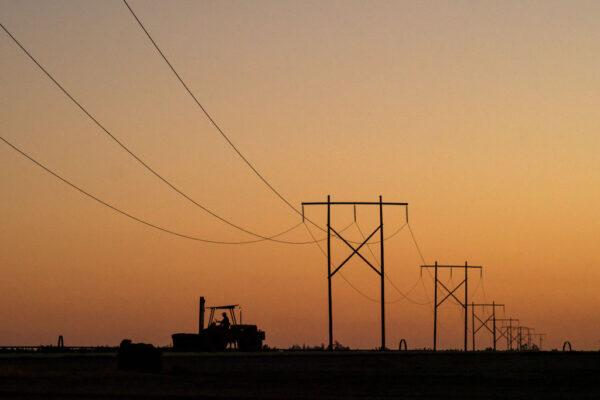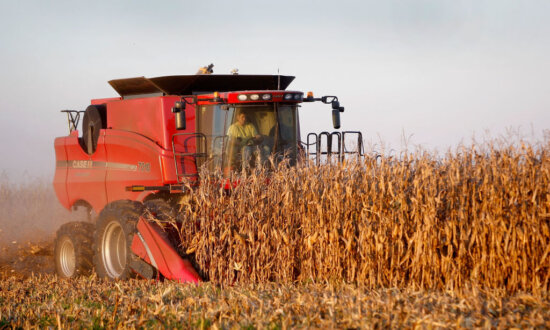Federal agencies don’t have reliable information on China buying U.S. farmland due to “flawed” data collection and reporting processes, a new government report finds.
The new report summarizes a 16-month review the GAO conducted in response to requests from 130 Republican lawmakers, including leaders from committees of jurisdiction, according to Kimberly Gianopoulos, GAO’s director of international affairs and trade.
Instead of holding the report for 30 days, the congressional requesters, organized by the House Committee on Agriculture, chose to release the findings to the public and members of Congress on the same day, Ms. Gianopoulos told The Epoch Times.
Lawmakers React
“Growing foreign ownership of U.S. farmland, particularly by China, poses a direct threat to our food security and national security,” House Committee on Agriculture Chairman Glenn “GT” Thompson (R-Pa.) and House Committee on Oversight and Accountability Chairman James Comer (R-Ky.), two of the leaders who requested the GAO review, said in their joint statement.
“Safeguarding our farmland and food supply requires a whole of government approach and we will continue to work with the impacted agencies, related committees, and leadership to continue our robust oversight and to identify legislative vehicles to address the findings of the GAO report,” they added.
Reduced Penalty
China held 346,915 acres of U.S. agricultural land as of the end of 2022, according to USDA data. Hong Kong is reported separately, with which the total would increase to about 500,000 acres. The USDA report emphasized that any numbers “should be interpreted as a minimum” due to data collection limitations.
The USDA relies on foreign investors to self-report their farmland purchases, and when they don’t comply, they don’t face strict reinforcements.
For example, the authors of the GAO report noted eight penalty assessments for non-compliance between 2012 and 2021. Their interviews with USDA officials indicated that “most penalties equal less than one percent of the value of the land because the main goals of its AFIDA efforts are to maximize compliance and not to discourage potential filers from filing due to fears of large penalties.”

Interagency Collaboration
“It was very interesting to me how the AFIDA process was taking place within USDA, and how it was still, to some degree, a manual process at the county and the local levels, and how the information was not proactively being shared with CFIUS and with relevant agencies on a timely basis, given the amount of focus these days on China and the economic competition we have with China,” Ms. Gianopoulos said.
The GAO report finds that USDA’s foreign farmland purchase data is not regularly shared with the CFIUS or regularly included in CFIUS reviews.
However, the USDA responds timely to requests, according to the report. For example, in March 2023, the USDA presented AFIDA-related information to Department of Defense (DOD) officials interested in Chinese farmland ownership in the United States and holdings at a specific location.
Recommendations
The GAO made six recommendations, including detailed and timely sharing of foreign farmland transactions between the USDA and the CFIUS, creating an online database, and recording more tiers of investors beyond the primary. According to the report, the USDA requested $10 million over five years to create the database and has $1 million for the purpose in the budget this fiscal year, which starts on Oct. 1, 2023.
“It was nice to be able to make recommendations to basically connect the dots and connect the two agencies together and make recommendations where we could help bolster a rigorous process that was already in place with information that would be clearly relevant to that process,” Ms. Gianopoulos said, referring to the USDA and the CFIUS.
She added that she would welcome a hearing on the report or other steps toward implementing some of GAO’s recommendations.
The Epoch Times has contacted the Farm Production and Conservation Business Center (FPAC-BC) for comment. The FPAC-BC is the USDA’s branch responsible for managing agricultural foreign investment disclosure.











